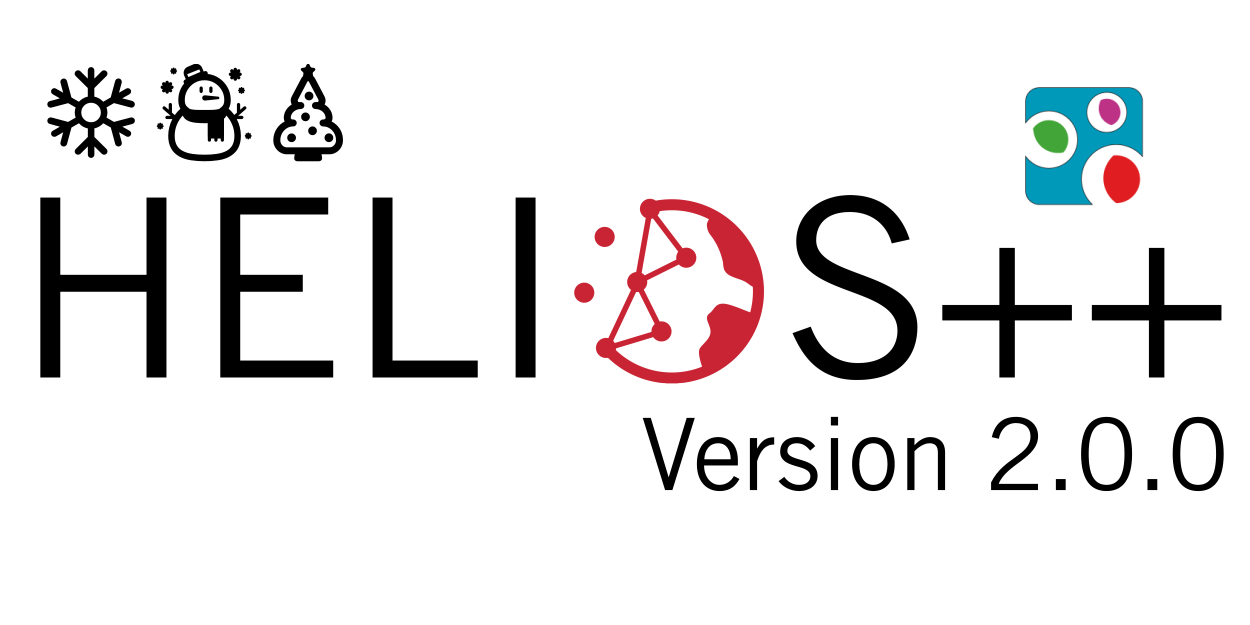We are happy to release a new major version of HELIOS++: https://github.com/3dgeo-heidelberg/helios/releases
What’s new in this release?
- New modernized CMake build system that allows Python packaging
- HELIOS++ is on conda-forge!
- Extended support for dynamic scenes: swap on repeat – Check out notebook 16 in our gallery
- New regression testing framework
- Several bug and memory leak fixes
Installation
The new way to install HELIOS++ is via the conda or mamba package managers. We recommend mamba or micromamba. After creating a dedicated Python environment for your HELIOS++ project and activating it, run:
mamba install helios
or
conda install -c conda-forge heliosAlternatively, you can use the appropriate standalone installer for your operating system on the release page. This will install HELIOS++ and add two start menu shortcuts:
- HELIOS++ Terminal Session: Opens a terminal in your user folder in which
heliosis registered as command line tool and a Python environment withpyheliosis available - HELIOS++ Jupyter Session: Opens a JupyterLab session in your user folder which uses a Python kernel with
pyheliosinstalled
To get started with our example notebooks, clone the HELIOS++ repository with
git clone https://github.com/3dgeo-heidelberg/helios.git
cd heliosand run one of the notebooks from our gallery which can be found in example_notebooks!
About HELIOS++
HELIOS++ is an open source software project with a modern implementation in C++ and Python. It is mainly developed and maintained by the 3DGeo Research Group and the Scientific Software Center (SSC) at Heidelberg University. HELIOS++ is available on conda-forge and the code is hosted on GitHub. We invite interested researchers and developers to contribute to further development of this project by submitting pull requests. We also host an extensive wiki, where the complete functionality of HELIOS++ is documented.
If you use HELIOS++ in your work, please cite:
- Winiwarter, L., Esmorís Pena, A., Weiser, H., Anders, K., Martínez Sanchez, J., Searle, M., Höfle, B. (2022): Virtual laser scanning with HELIOS++: A novel take on ray tracing-based simulation of topographic full-waveform 3D laser scanning. Remote Sensing of Environment. Vol. 269.
HELIOS++ is funded by the German Research Foundation (DFG) as part of the VirtuaLearn3D project (project number: 496418931) and the Sustainable HELIOS++ project (project number: 528521476) and by the Federal Ministry of Education and Research (BMBF) as part of the AIMon5.0 project (funding code: 02WDG1696).





